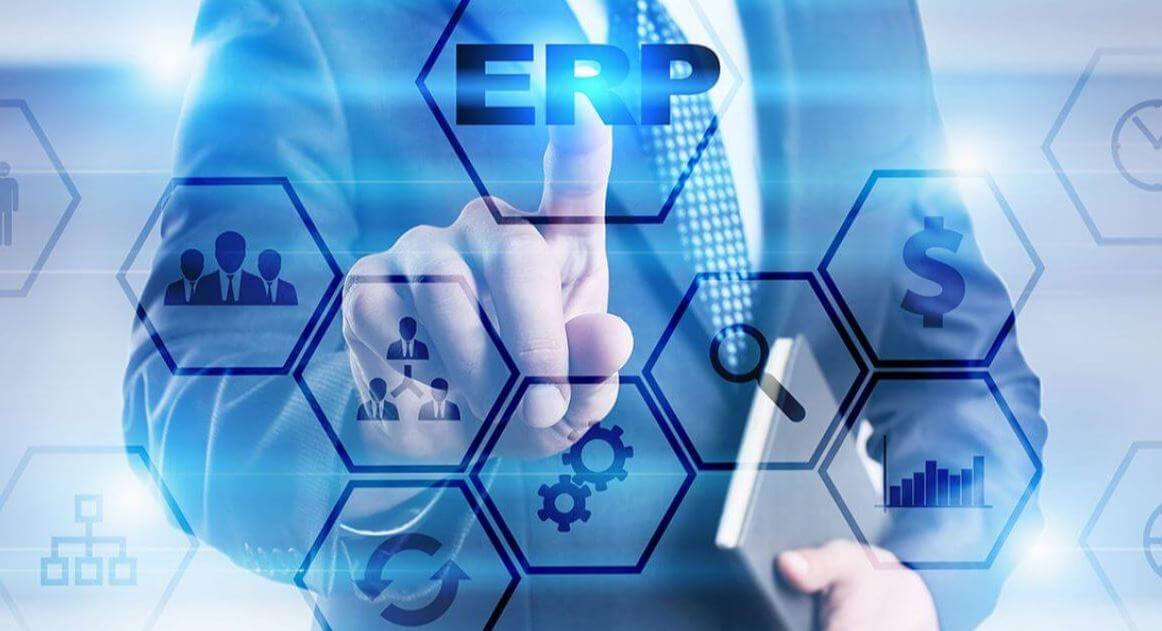Enterprise resource planning (ERP) is a process where a company, most often a manufacturer, is in charge of managing and integrating the core parts of its business. Such parts would typically include purchasing, inventory, finance, marketing, human resource, planning, and sales. ERP software selection starts with measuring the commitment, capabilities, and capacity of your organization.
Numerous applications have been developed to help organizations implement ERP. ERP systems may sometimes fail not because they are inefficient but due to the company’s organization.
- Choosing Right POS Software for Liquor or Wine Store
- 5 Best VoIP Service Provider for Your Business
- Online Businesses and Loans: How to Get Financed?
- The Best Way to Use Social Media For Your Business.
- How Much Does a Moving Company Cost Now A Days
- 5 Advantages of IT Outsourcing To Grow Your Business
Choosing the best ERP software will help propel your business. ERP software is cost-intensive, and it also requires time for it to work fully. As more people come up with ERP software, you will find promises of instant profits upon application. However, these promises may turn out to be false. Here’s a guide on choosing the best ERP software for your business.
1. Consider your needs
The first basic step before even looking for ERP software is identifying your company needs. Pu in mind that every software comes with specific features which serve particular purposes. Know what the company requires; have a comprehensive list of the requirements. Consider documenting current business strengths and weaknesses. Also, come up with an idea of how the process should look like in the future. The list becomes a guideline to finding compatible software with the business.
Find software that is in line with the company needs. For example, if your company is into accounting or offering sales services, get an ERP system that includes the necessary modules.
Sometimes, when the office PCs act up, it could be Microsoft Compatibility Telemetry as explained by https://techloris.com/microsoft-compatibility-telemetry/ , the same case applies to ERP systems, you need to understand how it works so that the business runs smoothly.
2. Consider one that generates a management report
Great ERP software should be able to create reports. As you know, it’s impossible to check on every single process of the business therefore carefully; you need software that you will easily access the reports that will help you, as the business owner analyzes business operations.
Such reports will ensure that you know what business operations need to be improved so that they can translate to profits through maximum productivity.
3. Consider Scalability
The truth is, most businesses always have plans to expand in the future. Does the software you are considering have room for growth? Is it possible to add more features in the future?
An efficient software should have options for expansion when needed and without affecting the existing ones. It is crucial to have software that has room for expansion.
Avoid investing in software that could be a stumbling block in the future when your business grows. Seek a partner who will grow with you as the company grows.
4. What’s your Budget?
When it comes to the purchasing decision, the overall cost will at some point be a significant determinant on what you buy. What’s your budget? You must have set a budget to spend on the software.
Some may argue out that the cheapest is what you buy, but that should not be the case. As much as the cost is a determinant, it should not be the only thing you consider. Find software that will run smoothly with your business.
Get software that is budget-friendly but also has the features you are looking for. In case it’s the first time you are getting one, talk to a consultant who will advise on some of the best ones to consider.
5. Business Type
Some ERP packages are designed for specific industries. Research on what package suits your business before purchasing. Gather as much information as you can on the one you finally settle to avoid making huge financial mistakes.
There are numerous packages such as those designed for accounting or even school attendance. Most importantly, buy a package that is designed specifically for your business. This way, you can be sure that it will serve your business purpose.
6. Mobile Friendly
As the years go by, it is evident that Millennials prefer work flexibility. They want to work from home at times. Consider a system that is mobile friendly.
When looking into this, ensure that as much as it is mobile friendly, It has security features ensuring that all sensitive data is encrypted.
7. Platform Needed
Before settling on software, decide on the type of platform you need. There are three models; local, hybrid and cloud.
The local option may require an initial upfront investment. For hybrid systems, they’ll require careful customization. The cloud systems will require careful integration and compatibility testing before you initiate data migration.
ERP systems have been able to ensure that you rely on automation and integration of your business. As such, it is crucial that you make a wise purchasing decision to ensure that your business process runs smoothly. The results will be through making more profits which will help your business grow.

